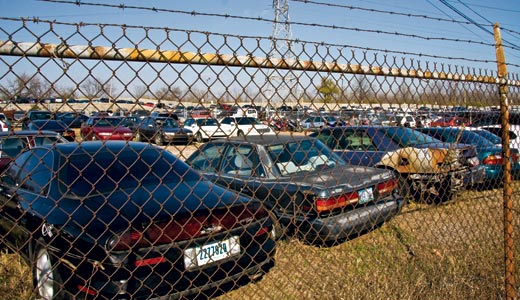
Posted on January 1, 2024 by Admin
Secondary towing impound lot requirements refer to the regulations and standards that govern impound lots where vehicles towed as a result of secondary towing are stored. These requirements vary depending on local laws, regulations, and the policies of the towing company or impound lot operator. Here are some common considerations for secondary towing impound lots:
Impound lots typically need to obtain appropriate licenses and permits from local authorities to operate legally. These may include zoning permits, business licenses, and permits specific to towing and vehicle storage operations.
Impound lots must implement adequate security measures to prevent theft, vandalism, and unauthorized access to vehicles stored on the premises. This may include fencing, lighting, surveillance cameras, security patrols, and restricted access controls.
Impound lots must have sufficient storage capacity to accommodate the vehicles towed as a result of secondary towing. This includes designated spaces for storing multiple trailers and vehicles, as well as facilities for organizing and managing the storage area efficiently.
Impound lots are typically required to maintain accurate records of all vehicles stored on the premises, including details such as the vehicle identification number (VIN), registration information, towing date and time, owner information, and reason for towing. Proper documentation helps ensure transparency and accountability in the towing process.
Impound lots must be easily accessible to towing companies, law enforcement agencies, and vehicle owners who need to retrieve their vehicles. They may also be required to operate during specified hours to facilitate vehicle retrieval and administrative tasks.
Impound lots must comply with environmental regulations regarding the handling and disposal of hazardous materials such as automotive fluids, batteries, and tires. Proper storage and disposal practices are necessary to minimize environmental impact and ensure compliance with relevant laws.
Impound lots typically charge fees for vehicle storage and towing services. The fee structure and payment policies must be transparent and in accordance with applicable regulations. Additionally, impound lots may be required to accept various forms of payment and provide receipts for services rendered.
Impound lots may be required to notify vehicle owners promptly after their vehicles are towed and provide information on how to retrieve them. Notification methods may include mailed notices, phone calls, or electronic notifications, depending on local regulations.
Overall, adherence to these requirements helps ensure the proper operation of secondary towing impound lots and protects the rights of vehicle owners while maintaining public safety and order.